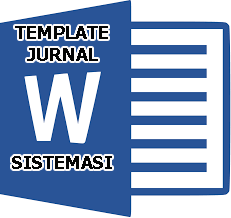Development of Folk Games as an Android-Based Game for Advancement Riau Malay Culture
Abstract
Full Text:
PDFReferences
A. W. Syakhrani and M. L. Kamil, “Budaya Dan Kebudayaan: Tinjauan Dari Berbagai Pakar, Wujud-Wujud Kebudayaan, 7 Unsur Kebudayaan Yang Bersifat Universal,” Cross-border, vol. 5, no. 1, pp. 782–791, 2022.
Y. Apriati, L. Azkia, and Alfisyah, “Pendidikan Sosial Budaya Berbasis Permainan Rakyat Di Masyarakat Lahan Basah,” Edukatif: Jurnal Ilmu Pendidikan, vol. 1, no. 1, 2019, [Online]. Available: https://edukatif.org/index.php/edukatif/index
A. Liliweri, Pengantar studi kebudayaan. Nusamedia, 2019.
Amaliyatul Ulya and Ahmad Arifi, “Media Game Edukasi Quizizz dalam Pembelajaran Sejarah Kebudayaan Islam Sebagai Upaya Meningkatkan Hasil Belajar Siswa,” Edulab : Majalah Ilmiah Laboratorium Pendidikan, vol. 6, no. 1, pp. 80–94, 2021, doi: 10.14421/edulab.2021.61.07.
A. A. Saputra, F. N. Putra, and R. D. R. Yusron, “Pembuatan Game Edukasi Pengenalan Kebudayaan Indonesia Menggunakan Metode Game Development Life Cycle ( GDLC ) Berbasis Android,” Journal Automation Computer Information System, vol. 2, no. 1, pp. 66–73, 2022.
K. C. Lamia, A. S. M. Lumenta, and B. A. Sugiarso, “Implementation of the A* (A Star) Algorithm in the Minahasa Culture 3D Game,” Jurnal Teknik Elektro dan Komputer, vol. 11, no. 2, pp. 55–66, 2022.
A. G. Salman, N. Chandra, and N. Norman, “Game Edukasi Pengenalan Kebudayaan Indonesia Berbasis Android,” ComTech: Computer, Mathematics and Engineering Applications, vol. 4, no. 2, p. 1138, 2013, doi: 10.21512/comtech.v4i2.2581.
B. Pane, X. Najoan, and S. Paturusi, “Rancang Bangun Aplikasi Game Edukasi Ragam Budaya Indonesia,” Jurnal Teknik Informatika, vol. 12, no. 1, pp. 1–9, 2017, [Online]. Available: https://ejournal.unsrat.ac.id/v3/index.php/informatika/article/view/17793/17317
N. H. Ginal Fikri Al Hakim, DIdi Juardi, “Pemanfaatan Teknologi Virtual Reality Untuk Pengenalan Museum Virtual Karawang Menggunakan Metode Multimedia Development Life Cycle,” Al-Irsyad, vol. 105, no. 2, p. 79, 2022, [Online]. Available: https://core.ac.uk/download/pdf/322599509.pdf
Q. J. Adrian and A. Apriyanti, “Game Edukasi Pembelajaran Matematika Untuk Anak Sd Kelas 1 Dan 2 Berbasis Android,” Jurnal Teknoinfo, vol. 13, no. 1, p. 51, 2019, doi: 10.33365/jti.v13i1.159.
A. Wahyudinata and H. B. Dirgantara, “Pengembangan Gim Edukasi 2D Pemilahan Sampah Daur Ulang Berbasis Android,” MATRIK : Jurnal Manajemen, Teknik Informatika dan Rekayasa Komputer, vol. 20, no. 1, pp. 129–138, 2020, doi: 10.30812/matrik.v20i1.860.
R. E. Randiani and H. B. Dirgantara, “Pembangunan Gim Edukasi Peraturan Lalu Lintas Kawasan Ganjil Genap di Jakarta Berbasis Android,” Jurnal Buana Informatika, vol. 11, no. 1, p. 36, May 2020, doi: 10.24002/jbi.v11i1.2943.
J. Enstein, V. R. Bulu, and R. L. Nahak, “Pengembangan Media Pembelajaran Game Edukasi Bilangan Pangkat dan Akar menggunakan Genially,” Jurnal Jendela Pendidikan, vol. 2, no. 1, pp. 101–109, 2022.
R. A. Krisdiawan, M. F. Rohmana, and A. Permana, “Pembuatan Game Runaway From Culik Dengan Algoritma Fuzzy Mamdani,” Buffer Informatika, vol. 6, no. 1, pp. 33–40, 2020.
R. A. Krisdiawan and Rio, “Penerapan Model Pengembangan Game Gdlc (Game Development Life Cycle)Dalam Membangun Game Platform Berbasis Mobile,” Teknokom, vol. 2, no. 1, pp. 31–40, 2019.
S. Wahyu, “SKANIKA: Sistem Komputer dan Teknik Informatika Penerapan Metode Game Development Life Cycle Pada Pengembangan Aplikasi Game Pembelajaran Budi Pekerti,” SKANIKA: Sistem Komputer dan Teknik Informatika, vol. V, pp. 82–92, 2022.
L. J. Moleong, “Metodologi penelitian kualitatif,” 1989.
S. Margono, “Metodologi penelitian pendidikan.” Jakarta: rineka cipta, 2004.
D. P. Rakhmadani, A. J. T. Segara, and F. D. Adhinata, “Rancang Bangun Permainan Edukasi Anak Berbasis Android Dengan Penerapan Metode STM / LTM,” Journal ICTEE, vol. 2, no. 1, p. 17, Mar. 2021, doi: 10.33365/jictee.v2i1.1015.
A. Vickro, N. Safaat H, M. Irsyad, and P. Pizaini, “Perancangan Storyboard Pada Game Edukasi Kerajaan Siak Sri Indrapura dengan Genre RPG Menggunakan Metode Balanced design,” Jurnal Pendidikan dan Teknologi Indonesia, vol. 3, no. 1, 2023, doi: 10.52436/1.jpti.266.
P. Ambarwati and P. S. Darmawel, “TEKNIK IMPLEMENTASI MULTIMEDIA DEVELOPMENT LIFE CYCLE,” Majalah Ilmiah UNIKOM, vol. 18, no. 2, pp. 51–58, 2020.
DOI: https://doi.org/10.32520/stmsi.v13i1.3770
Article Metrics
Abstract view : 606 timesPDF - 192 times
Refbacks
- There are currently no refbacks.

This work is licensed under a Creative Commons Attribution-ShareAlike 4.0 International License.









